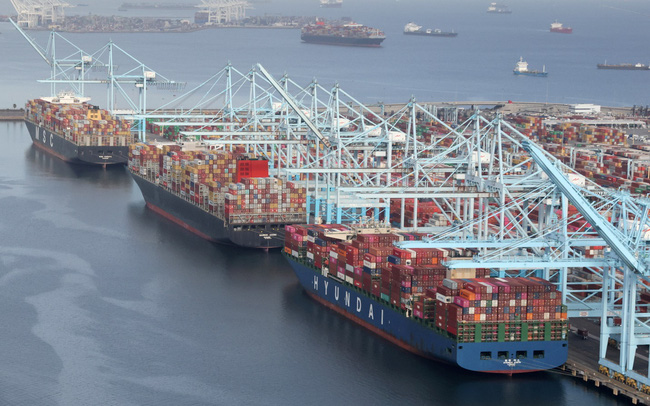According to traders, China benefits from cheap Russian oil as it faces shrinking profit margins in a slowing economy. The price of Russian crude oil is currently much lower than that of countries in the Middle East, Africa, Europe or the United States. Currently, spot oil prices are about $29 per barrel lower than they were in the pre-conflict period.
According to Reuters, China is quietly increasing its purchases of cheap oil from Russia, filling the void left by Western countries after geopolitical tensions erupted in February.
The move by the world’s largest oil importer comes a month after the country initially announced it would cut imports of Russian oil over concerns that if it publicly supported Moscow, major Chinese companies would be subject to sanctions. Western sanctions.
According to Vortexa Analytics estimates, China’s seaborne oil imports from Russia will be close to hitting a record 1.1 million bpd in May, up from 750,000 bpd in the first quarter and 800,000 bpd in 2021.
As for the pipeline, China imports about 800,000 bpd of Russian oil under government agreements. Thus, in May, China’s oil imports from Russia were about 2 million barrels per day, equivalent to about 15% of the total demand of the world’s second largest economy.
Chinese state-owned companies, led by Sinopec and Zhenhua, are set to buy two-thirds of Russia’s ESPO oil in May, up from a third before the Russia-Ukraine tensions escalated. Russia exported about 24 million barrels in May, 6% higher than in April.
Sinopec alone, it bought at least 10 ESPO shipments in May, doubling the volume compared to pre-February, with some transactions reaching a record discount of $20 a barrel.
As for Russia, oil sales are helping it withstand economic sanctions from Western countries.
Russia’s crude oil production in May recovered after falling by as much as 1 million bpd in April amid the country’s still under pressure from Western countries.
Russian Energy Minister Alexander Novak recently said that the country’s crude oil production in May increased by 200,000-300,000 bpd and will increase in the next month. Before that, the country’s crude oil production fell by up to 1 million barrels per day, according to the site S&P Global Commodity Insights.
Unipec, the commercial arm of Asia’s top refiner Sinopec Corp, is leading the purchases, along with Zhenhua Oil, a unit of China’s Norinco defense group. Livna Shipping Ltd, a Hong Kong-registered company, has also recently emerged as a major carrier of oil from Russia into China, traders said.
Companies are filling the void left by the West after the Russia-Ukraine tensions flared up.
The US, UK and several other countries have banned the import of Russian oil. The European Union is in the process of negotiating another round of sanctions, including a ban on buying Russian oil. Many European refineries have stopped buying from Russia for fear of facing sanctions or causing negative publicity.
Vitol and Trafigura, two of the world’s largest commodity traders, have phased out purchases from Rosneft, Russia’s largest oil producer.
“The situation began to change dramatically after the departures of Vitol and Trafigura, creating a void that could only be filled by companies that could provide value and were trusted by Russian partners.” said an unnamed Chinese trader.
According to traders, China benefits from cheap Russian oil as it faces shrinking profit margins in a slowing economy. The price of Russian crude oil is currently much lower than that of countries in the Middle East, Africa, Europe or the United States. Currently, spot oil prices are about $29 per barrel lower than they were in the pre-conflict period.
Sinopec, Zhenhua and Livna are shipping more oil from Russia’s Baltic Sea ports located in Northwestern Europe and the Kozmino export hub in the Far East.
Some sources say that Zhenhua, the smallest state-owned oil company in China, has chartered ships to transport Russian oil. North Petroleum International, a subsidiary of Zhenhua, also purchased two shipments of ESPO oil in early May, another two shipments of Ural oil from the Baltic port of Ust-Luga in late April and mid-May.
Livna, which is not a dominant player in shipping Russian oil to Asia, has also shipped more than 7 million barrels of Russian Ural and ESPO crude to China since the end of April.
T&G Import-Export Joint Stock Company
Address: 352 Hue Street, Le Dai Hanh Ward, Hai Ba Trung District, Hanoi
Hotline: 02473010868
Email: hrm@tginterjsc.com
Website: http://tgimportexport.co



















